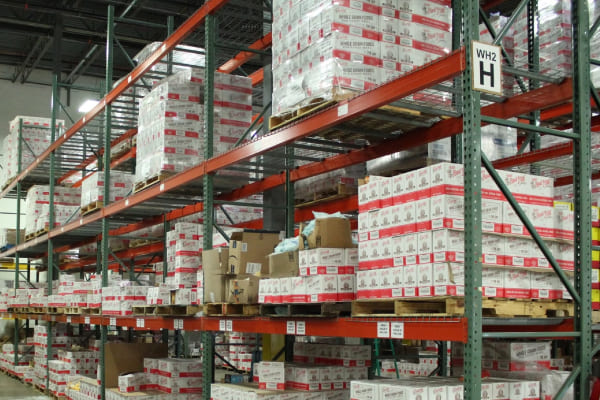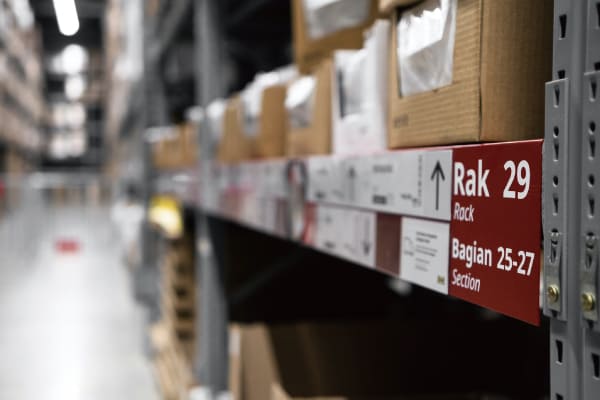Call Us :8615298359310
Call Us :8615298359310
In the dynamic landscape of supply chain management, the concept of postponement emerges as a strategic imperative, enabling companies to navigate evolving market demands and optimize operational efficiency. Postponement in logistics involves the deliberate delay of certain production or distribution activities until precise demand information becomes available or products approach their final destination. By maintaining products in a generic form until customer orders necessitate customization or finalization, businesses unlock avenues for flexibility, cost-saving, and enhanced customer satisfaction.
Advantages of Postponement in Logistics
Flexibility stands as a cornerstone advantage of postponement in logistics. Companies can respond promptly to market fluctuations and evolving customer preferences by deferring final production until specific demand patterns emerge. This adaptability minimizes the risks associated with obsolete inventory and overstock, ensuring optimal resource allocation and market responsiveness. For instance, companies like Zara have leveraged postponement to customize their fashion offerings based on real-time market feedback, thereby maintaining a competitive edge in the fast-paced fashion industry.
Moreover, postponement yields tangible cost reductions through efficient inventory storage practices. By storing products in a generic form until the last moment, companies minimize warehouse space requirements and associated maintenance expenses. This streamlined approach not only enhances cost-efficiency but also mitigates the financial risks inherent in inventory management. For example, Amazon's dynamic fulfillment network exemplifies how strategic postponement strategies optimize storage capacity while meeting customer demand with minimal delay.

Additionally, the adoption of postponement drives supply chain efficiency by streamlining distribution processes and reducing lead times. By postponing customization until demand specifics are known, companies expedite product delivery and optimize resource utilization across the supply chain. Notably, companies like Dell have revolutionized the electronics industry by implementing postponement strategies that allow for customizable product configurations based on individual customer requirements, thereby enhancing operational agility and customer satisfaction.
Furthermore, postponement facilitates better inventory management by aligning production decisions with accurate demand data. By deferring customization until customer orders are received, companies minimize the risks of excess inventory and stockouts, optimizing inventory turnover and revenue generation. Walmart's agile supply chain exemplifies how strategic postponement practices empower companies to maintain optimal stock levels while meeting fluctuating customer demands with precision and efficiency.
Disadvantages of Postponement in Logistics
However, the adoption of postponement is not devoid of challenges. Complexities in planning and coordination may arise, necessitating robust communication channels and meticulous demand forecasting. Ineffective coordination between internal departments can lead to disruptions in supply chain operations, compromising customer satisfaction and profitability. Notably, companies like Toyota have addressed these challenges by implementing collaborative supply chain management systems that foster seamless coordination and information sharing across organizational boundaries.
Moreover, the implementation of postponement strategies may incur additional transportation costs, especially if more frequent and smaller shipments are required to meet customer demands. However, strategic partnerships and innovative logistics solutions can mitigate these challenges, enabling companies to optimize transportation routes and minimize associated costs. For instance, companies like UPS have leveraged advanced route optimization algorithms to streamline delivery processes and minimize carbon emissions, thereby enhancing sustainability and cost-effectiveness.
Furthermore, the heightened risk of errors during the postponement process necessitates rigorous quality control measures and continuous process improvement initiatives. Companies must invest in robust quality management systems and employee training programs to mitigate the risks of product defects and shipping errors. By fostering a culture of continuous improvement and accountability, companies can enhance operational excellence and customer satisfaction while minimizing the costs of rework and product recalls.
Main Applications of Postponement in Logistics
In practice, postponement finds diverse applications across industries, each leveraging its inherent advantages to optimize supply chain performance and gain a competitive edge.

In the textile and fashion industry, postponement enables manufacturers to produce generic garments and customize them based on real-time market feedback, thereby reducing inventory holding costs and meeting customer demand with precision. Similarly, in the electronics and household appliances sector, postponement allows companies to standardize product components and customize them based on individual customer preferences, enhancing product relevance and market competitiveness.
In the food and beverage sector, perishable products can benefit from postponement by maintaining generic packaging and labeling until products are ready to be shipped to specific destinations, thereby minimizing the risk of waste and preserving product quality.
Likewise, in the automotive sector, postponement enables companies to standardize vehicle components and customize them based on customer preferences, geographical location, and specific market requirements. By aligning production decisions with real-time demand data, companies can optimize inventory levels and streamline distribution processes, thereby enhancing operational efficiency and customer satisfaction.
Copyright © 2024 Jiangsu VISON Logistics Technology Co., Ltd. All Rights Reserved.  Network Supported
Network Supported
Sitemap | Blog | Xml | Privacy Policy